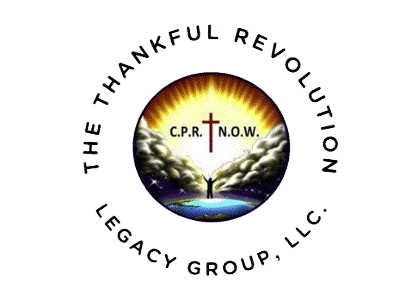Blog Posts

The Power of Pivoting: How to Change Your Perspective and Your Life
We all go through moments where we feel stuck like we’re trapped in a situation that seems impossible to change. The frustration builds up, and it’s easy to feel weighed down by everything going wrong. Whether it’s a job that feels like a dead-end, problems in relationships, or simply feeling lost, it can feel like you’ve hit a brick wall with no way around it.
But here’s the thing—sometimes, the solution isn’t about trying to break through the wall but instead, changing how you look at it. This is where the power of pivoting comes in.
In this blog, we’ll explore how shifting your perspective can open up new possibilities, turn challenges into opportunities, and ultimately help you change your life for the better.
What Is Pivoting?
When I say "pivot," I’m not talking about giving up or avoiding problems. It’s more about making a conscious choice to change your mindset. Imagine it like adjusting the lens you see the world. With just a small shift, what once seemed impossible can start to feel achievable—or even exciting.
I’m not saying it’s easy. Pivoting means letting go of old beliefs, habits, and ways of thinking. But here’s the good news: you don’t have to be an expert to make this change. I’m proof that anyone, no matter their background, can benefit from this kind of mindset shift.
The beauty of pivoting is that it creates new opportunities, no matter where you’re starting from. By being open to seeing things differently, I’ve turned challenges into chances to grow. The goal isn’t to pretend things aren’t hard but to approach them with a mindset focused on growth and possibility instead of fear or limits. This shift in perspective has completely changed my life, and I believe anyone can experience this—even if it starts with just a small step in a new direction.
The Importance of Pivoting in Changing Perspective
Changing Perspective from Shame to Self-worth | Sue Bryce | TEDxPepperdineUniversity
There was a time when my life felt stuck. I was frustrated and trapped on a path that didn’t work for me anymore. During this tough period, I realized the real change I needed wasn’t in my situation but in how I looked at it. That experience taught me that sometimes, it’s our perspective, not our circumstances, that needs a shift.
Imagine you’re in a difficult spot, and it feels like nothing is working. Instead of focusing solely on the external problems, consider that a shift in how you perceive these issues can make a significant difference. Pivoting involves stepping back, reassessing, and choosing to see challenges as opportunities for growth rather than insurmountable obstacles.
For instance, if you’re struggling to rebuild your life after trauma, you might start by spending a few minutes each day on activities that bring you joy or offer a sense of achievement. This approach helps turn feelings of being stuck into opportunities for personal growth. By focusing on what you can learn or experience rather than what went wrong, you can find new paths forward.
This shift in perspective can lead to profound personal transformation. While letting go of old habits and beliefs may be challenging, it can be immensely rewarding. g. A fresh way of thinking helps turn obstacles into stepping stones and guides you toward a more fulfilling and purposeful life, echoing the promise in Isaiah 43:19 (NIV):
"See, I am doing a new thing! Now it springs up; do you not perceive it?"
Practical Steps to Start Pivoting in Your Own Life
So, how can you start using the power of pivoting in your own life? I’ve been through this journey, and while everyone’s path is unique, certain steps can help guide you. Here are some that worked for me:
1. Acknowledge Where You Are:
The first and most important step is being honest with yourself. Take a moment to really assess where you are in life and how you’re feeling about it. Do you feel stuck, unhappy, or restless? It’s okay to admit that things aren’t going as planned. Often, we try to convince ourselves that everything’s fine, but deep down, we know something’s off. Proverbs 28:13 (NIV) reminds us,
"Whoever conceals their sins does not prosper, but the one who confesses and renounces them finds mercy."
Recognizing that you need a change, even when it feels uncomfortable, is a powerful first step toward finding a new direction.
For example, you may have gone through a traumatic experience that left you feeling disconnected from yourself and your surroundings. Instead of pushing those feelings aside, you might start by giving yourself permission to feel whatever comes up.
Spend a few minutes each day reflecting on your emotions — whether through journaling, meditation or simply sitting with your thoughts. This practice can help you begin to understand the areas in your life where healing and change are most needed.
2. Shift Your Focus:
It’s easy to get caught up in what’s going wrong, but focusing on problems won’t move you forward. Instead, start thinking about how you could approach things differently or look for opportunities you might be missing.
Try spending 15 minutes each day doing something that uplifts you, like practicing gratitude or engaging in a hobby. For example, at the end of the day, write down one good thing that happened or recall a peaceful moment before bed. Focusing on these small positives helps to reframe challenges and create a more optimistic outlook.
Shifting your focus doesn’t mean ignoring your trauma; it’s about re-framing them. When I started asking these kinds of questions, new possibilities I hadn’t noticed before began to appear. Sometimes, it’s all about finding a silver lining or a fresh angle that offers a new perspective.
3. Take Small, Strategic Steps:
Pivoting doesn’t always mean making huge, life-changing decisions all at once (though that’s sometimes necessary). From my experience, the most effective changes usually start with small, consistent shifts. This could be as simple as tweaking a daily habit, exploring a new interest, or setting boundaries to prioritize your well-being. Zechariah 4:10 (NIV) says,
"Do not despise these small beginnings, for the Lord rejoices to see the work begin."
If you’re on a healing journey, try dedicating 30 minutes a day to learning coping strategies that resonate with you. This could include reading, practicing mindfulness, or engaging in creative expression. Over time, these small steps can accumulate, leading to significant positive changes in your emotional and mental well-being.
4. Embrace the Unknown:
One of the biggest challenges in pivoting is facing uncertainty. Let’s be real — change can be scary. You’re stepping into the unknown, leaving behind the familiar, even if that familiar isn’t serving you anymore. I won’t sugarcoat it — this part is tough. But I’ve learned that real growth happens when you let go of needing to control every outcome. Jeremiah 29:11 (NIV) reminds us,
"For I know the plans I have for you," declares the Lord, "plans to prosper you and not to harm you, plans to give you hope and a future."
If you’re considering a new direction in life, like starting a small venture or pursuing a passion project, start with manageable steps. Start small, such as researching or trying out a new activity on the weekends. Taking these initial steps, even when the outcome is uncertain, builds confidence and opens up new possibilities for your life that you might not have previously considered.
Embrace the idea that not everything will go as planned and stay open to what the journey brings. Often, the unclear paths end up leading to the most rewarding destinations.
5. Reconnect With Your Core Values and Purpose:
Core Values - Your Inner Compass | Larisa Halilović | TEDxFerhadija
Pivoting isn’t just about changing for the sake of change — it’s about aligning your life more closely with what truly matters to you. Take time to reconnect with your core values and ask yourself what you want out of this pivot. Proverbs 19:21 (NIV) states,
"Many are the plans in a person’s heart, but it is the Lord’s purpose that prevails."
Knowing your deeper “why” helps guide your decisions and keeps you motivated when things get tough.
Spend time reflecting on what truly brings you meaning and joy. Perhaps you value creativity, connection, or helping others. Begin integrating activities or commitments into your life that honor these values, whether it’s through volunteering, pursuing a passion project, or strengthening relationships. Having a clear sense of purpose can drive your pivot in the right direction.
6. Surround Yourself With Positive Influences:
The people you surround yourself with play a critical role in your healing journey. 1 Thessalonians 5:11 (NIV) encourages us,
"Therefore encourage one another and build each other up, just as in fact you are doing."
Positive influences can uplift your spirit, provide support, and encourage growth. As you pivot from trauma, seek out relationships and communities that foster positivity and resilience.
You might start by joining a support group or community of individuals who have also experienced trauma. Engaging with these like-minded individuals can provide a sense of belonging, offer valuable advice, and give you the emotional support needed to continue your journey toward healing and personal growth.
Surrounding yourself with positive influences makes the process of rebuilding your life feel less daunting and more achievable.
Conclusion
The power of pivoting lies in understanding that while you can’t always control what happens to you, you can control how you respond. By choosing to change your perspective, you’re not just reacting — you’re taking charge of your life.
If you’re feeling stuck or overwhelmed, maybe it’s time to consider a pivot. It doesn’t have to be a dramatic leap; sometimes, it’s as simple as choosing to see things differently. And when you do, you might just find that the life you want has been within reach all along — waiting for you to take that first step.
FAQs
1. Is pivoting a one-time event, or should it be an ongoing practice?
Pivoting is an ongoing practice. Life constantly presents new challenges and changes, so regularly reassessing your perspective and being open to shifts helps you stay adaptable and resilient.
2. What’s the difference between pivoting and just staying positive?
Pivoting is more than just staying positive. It’s about actively re-framing challenges in a way that leads to practical steps forward. It’s not about ignoring problems but finding new ways to approach and solve them.
3. Can pivoting be applied to all areas of life?
Yes, pivoting can be applied to various aspects of life.


